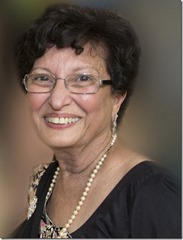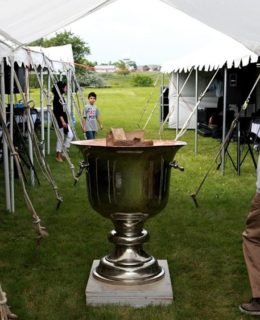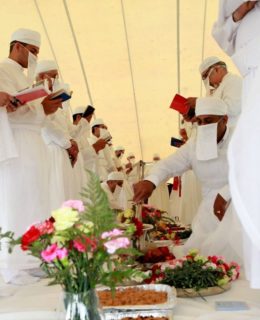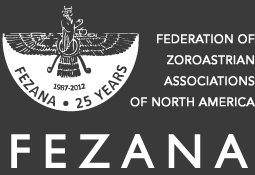FEZANA is proud to announce that our own Dolly Dastoor has been elected as a Trustee to sit on the Board of the Parliament of World’s Religions. This was announced in a recent communiqué by the Parliament of World’s Religions. She will be the only Zoroastrian on the Board. The trustees are elected for their work in the professional and interfaith field and not necessarily to represent their faith, but more importantly to think globally.
 Dolly has been a leading light in the Zoroastrian Community in North America and all over the world. As past President of the Zoroastrian Association of Quebec, and later as the Past-President of FEZANA (Federation of Zoroastrian Associations of North America) she has been a leader in the community for decades. Her current involvements include being the Chair of the Academic Scholarship Committee of FEZANA and as the Chief Editor of the FEZANA Journal, the flagship publication of FEZANA. The upcoming FEZANA Journal Summer 2016 issue will incidentally be Dolly’s 10th Anniversary issue as its Chief Editor.
Dolly has been a leading light in the Zoroastrian Community in North America and all over the world. As past President of the Zoroastrian Association of Quebec, and later as the Past-President of FEZANA (Federation of Zoroastrian Associations of North America) she has been a leader in the community for decades. Her current involvements include being the Chair of the Academic Scholarship Committee of FEZANA and as the Chief Editor of the FEZANA Journal, the flagship publication of FEZANA. The upcoming FEZANA Journal Summer 2016 issue will incidentally be Dolly’s 10th Anniversary issue as its Chief Editor.
Dolly was part of FEZANA’s contingent to the last Parliament of World’s Religions in Salt Lake City, Utah in October 2015.
Besides her community involvement, Dolly is a widely published research clinical psychologist and an authority on psychogeriatrics, most recently at the Douglas Mental Health University Institute in Montreal. She received her doctorate from Concordia University. Before coming to Canada, she was a Senior Research Fellow in Psychiatry and coordinator of the World Health Organization (WHO) Project on Schizophrenia at the University of Ibadan. She has been active in women’s organizations, especially ZONTA International.
About the Parliament of World’s Religions.
The Parliament of the World’s Religions seeks to promote interreligious harmony, rather than unity. The problem with seeking unity among religions is the risk of loss of the unique and precious character of each individual religious and spiritual tradition; this understanding is key to our framework.
Interreligious harmony, on the other hand, is an attainable and highly desirable goal. Such an approach respects, and is enriched by, the particularities of each tradition. Moreover, within each tradition are the resources (philosophical, theological and spiritual teachings and perspectives) that enable each to enter into respectful, appreciative and cooperative relationships with persons and communities of other traditions.





